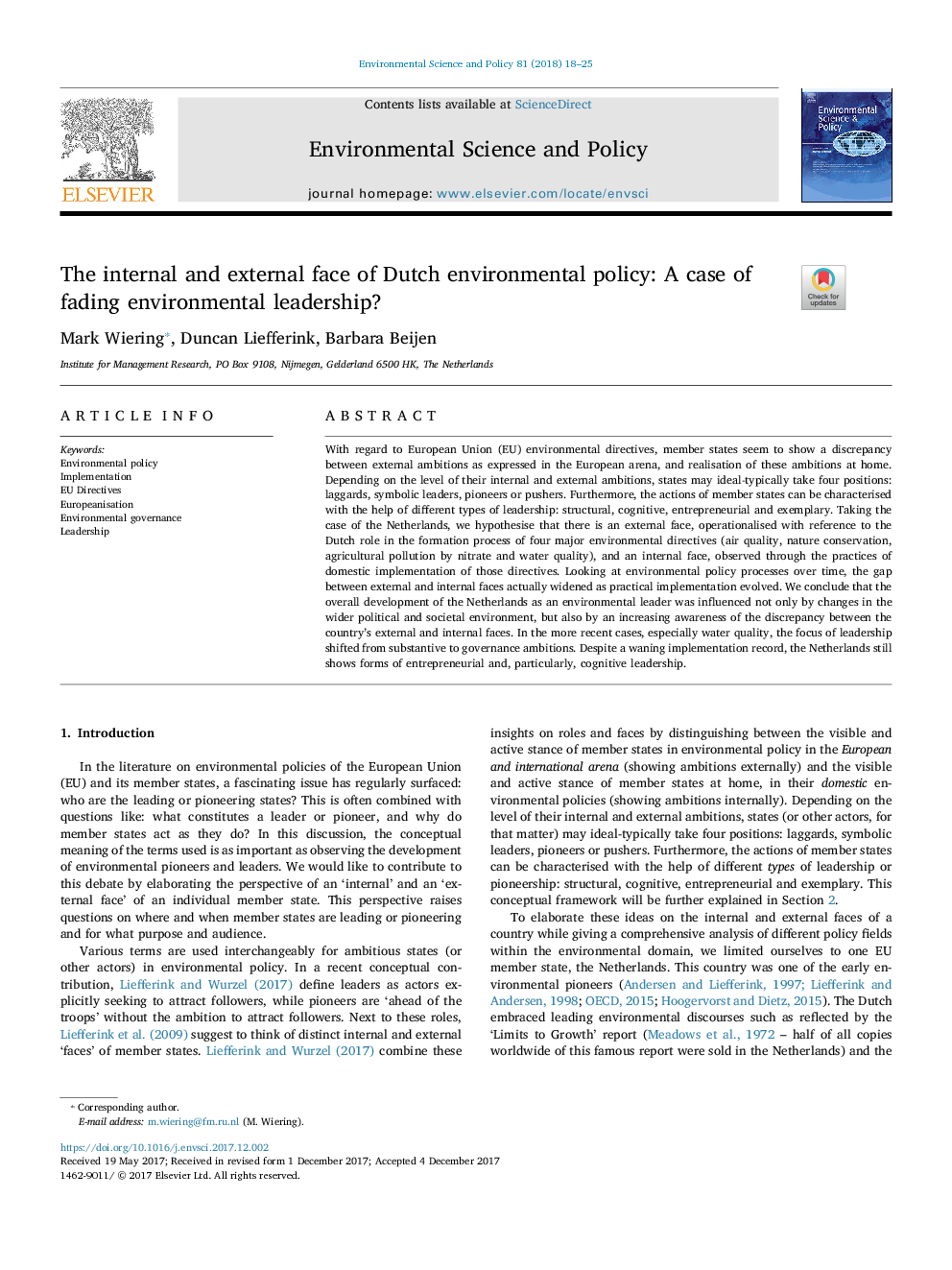ترجمه فارسی عنوان مقاله
چهره داخلی و خارجی سیاست زیست محیطی هلند: مورد محو شدن رهبری زیست محیطی است؟
عنوان انگلیسی
The internal and external face of Dutch environmental policy: A case of fading environmental leadership?
| کد مقاله | سال انتشار | تعداد صفحات مقاله انگلیسی |
|---|---|---|
| 95137 | 2018 | 8 صفحه PDF |
منبع

Publisher : Elsevier - Science Direct (الزویر - ساینس دایرکت)
Journal : Environmental Science & Policy, Volume 81, March 2018, Pages 18-25
ترجمه کلمات کلیدی
سیاست زیست محیطی، پیاده سازی، دستورالعمل های اتحادیه اروپا، اروپایی سازی، حکومتداری محیط زیست، رهبری،
کلمات کلیدی انگلیسی
Environmental policy; Implementation; EU Directives; Europeanisation; Environmental governance; Leadership;

